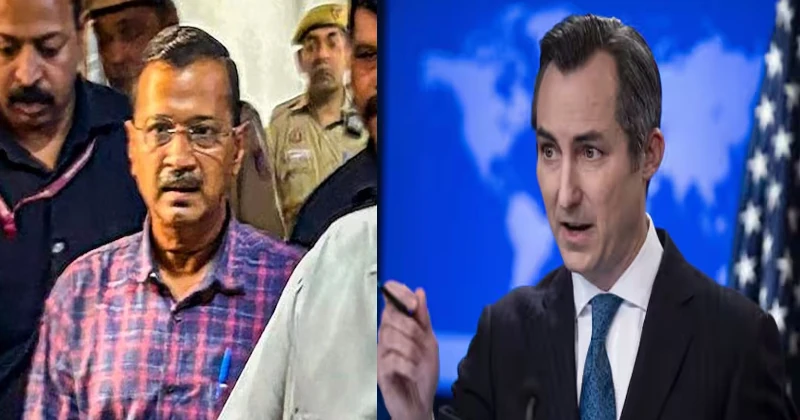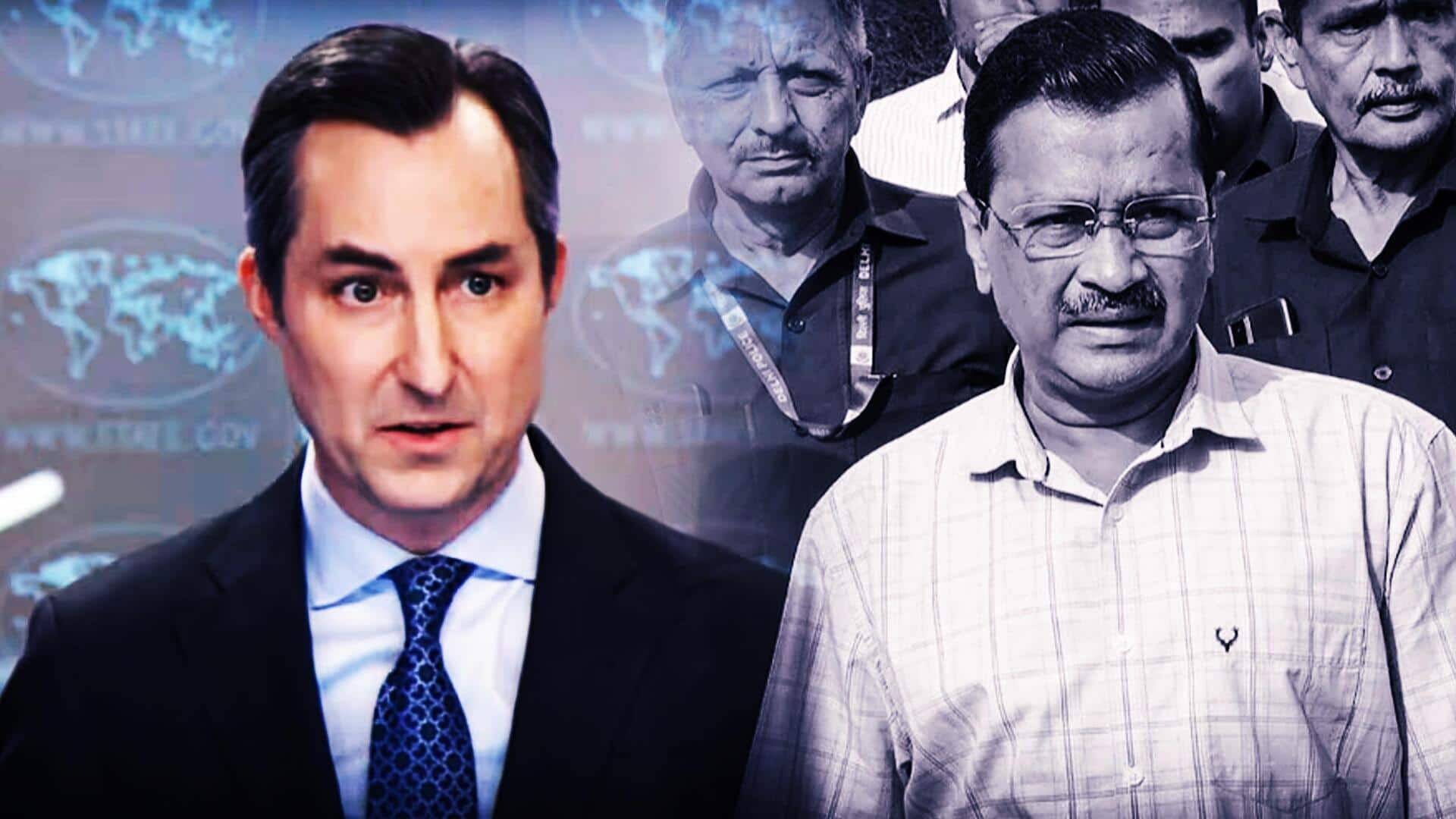In a diplomatic tussle, Pakistan raised eyebrows and sparked heated debates. The United States finds itself in the crossfire of scrutiny over its contrasting responses to the arrest of opposition leaders in Pakistan and India. The focus of this controversy lies squarely on the arrest of Gourav Vallabh, a prominent political figure who recently made headlines by switching allegiances from the Indian National Congress to the Bharatiya Janata Party (BJP).

The Silence Dilemma
The U.S. State Department spokesperson, Mathew Miller, faced a barrage of questions during a press briefing on Wednesday. Journalists probed him on why the department had vocally criticized the arrest of Indian opposition leader Arvind Kejriwal but remained conspicuously silent on the arrests of Pakistani opposition leaders. The juxtaposition of these two cases has ignited a firestorm of debate, with critics accusing the U.S. of double standards.
Miller, however, deftly navigated the minefield. He refused to lump both cases together, emphasizing that the U.S. sought consistent adherence to the rule of law and human rights in Pakistan. “We want to see everyone in Pakistan treated with respect for human rights,” he asserted. His measured response underscored the delicate balance the U.S. aims to strike in its relations with both countries.
Gourav Vallabh’s Dramatic Switch
Gourav Vallabh’s defection from the Congress to the BJP added fuel to the fire. Hours after tendering his resignation to Congress leader Mallikarjun Kharge, Vallabh officially joined the BJP at its Delhi headquarters. His reasons for leaving Congress were clear: discomfort with the party’s direction and an inability to endorse anti-Sanatan sentiments or criticize the country’s wealth creators. Vallabh, a Hindu by birth and a teacher by profession, expressed his frustration with the party’s stance on these issues.
India’s ‘Maryada’ and Diplomatic Etiquette
External Affairs Minister S. Jaishankar, addressing the media in Ahmedabad, Gujarat, minced no words. He invoked the term “Maryada” (dignity) to emphasize that sovereign countries should refrain from interfering in each other’s internal affairs. “We should not be passing comments about each other’s politics,” Jaishankar asserted. His stern message resonated with India’s insistence on maintaining diplomatic decorum.
Pakistan-U.S. Relations: A Balancing Act
The U.S.-Pakistan relationship is multifaceted. While the U.S. has been a significant investor in Pakistan and a crucial partner in various areas, including counterterrorism, it has also urged Pakistan to take decisive action against militant groups. The delicate dance between supporting Pakistan’s sovereignty and advocating for human rights remains a tightrope for U.S. policymakers.
Economic Ties and Polycrisis
Pakistan’s economy, battered by massive floods, teeters on the brink of defaulting on international debt obligations. The U.S. response has been swift, providing aid and support. However, the country grapples with political challenges, internal security threats, and a weakened diplomatic influence post-Afghanistan withdrawal.
The U.S. State Department Faces Scrutiny
In the wake of Vallabh’s high-profile move, the U.S. State Department found itself in a precarious position. Journalists grilled Mathew Miller, the department’s spokesperson, during a press briefing. The pointed question was: Why had the U.S. vocally criticized the arrest of Indian opposition leader Arvind Kejriwal but remained conspicuously silent on the arrests of Pakistani opposition leaders? The juxtaposition of these two cases raised eyebrows and fueled speculation.
Miller’s Diplomatic Tightrope Walk
Miller, seasoned in the art of diplomatic tightrope walking, chose his words carefully. He refused to lump both cases together, emphasizing that the U.S. sought consistent adherence to the rule of law and human rights in Pakistan. “We want to see everyone in Pakistan treated with respect for human rights,” he asserted. His measured response underscored the delicate balance the U.S. aims to strike in its relations with both countries.
India’s ‘Maryada’ and Diplomatic Etiquette
India’s External Affairs Minister, S. Jaishankar, minced no words. In a press conference in Ahmedabad, Gujarat, he invoked the term “Maryada” (dignity) to emphasize that sovereign countries should refrain from interfering in each other’s internal affairs. “We should not be passing comments about each other’s politics,” Jaishankar asserted. His stern message resonated with India’s insistence on maintaining diplomatic decorum.
Pakistan-U.S. Relations: A Balancing Act
The U.S.-Pakistan relationship is multifaceted. While the U.S. has been a significant investor in Pakistan and a crucial partner in various areas, including counterterrorism, it has also urged Pakistan to take decisive action against militant groups. The delicate dance between supporting Pakistan’s sovereignty and advocating for human rights remains a tightrope for U.S. policymakers.
Economic Ties and Polycrisis
Pakistan’s economy, battered by massive floods, teeters on the brink of defaulting on international debt obligations. The U.S. response has been swift, providing aid and support. However, the country grapples with political challenges, internal security threats, and a weakened diplomatic influence post-Afghanistan withdrawal.
Conclusion
As the U.S. navigates the complexities of South Asian geopolitics, it must tread carefully. The arrest of opposition leaders in Pakistan and India serves as a litmus test for its commitment to democratic values and human rights. The world watches closely, waiting to see how the U.S. balances its interests while maintaining diplomatic integrity.
Disclaimer: This article is a fictional creation based on real-world events and does not represent any official stance or endorsement by the U.S. government or any other entity.
Learn